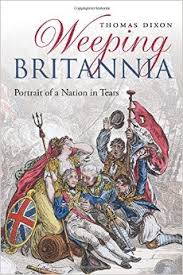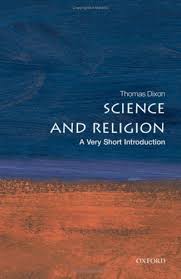Professor Thomas Dixon is a historian of philosophy, science, medicine, and religion, with particular expertise in the history of emotions. He is Senior Lecturer in History at Queen Mary, University of London, and Director of the UK’s first Centre for the History of the Emotions. He edits and contributes to the Centre’s popular blog: http://emotionsblog.history.qmul.ac.uk/
His Science and Religion: A Very Short Introduction (2008) was awarded the Dingle Prize for the best book on the history of science accessible to a wide readership, and he presented The End of God? A Horizon Guide to Science and Religion on BBC Four.
More recently Thomas has been an academic consultant and contributor to a three-part BBC Two series, Ian Hislop’s Stiff Upper Lip – An Emotional History of Britain, as well as writing and presenting a Radio 3 Sunday Feature documentary on the cultural history of weeping. His book Weeping Britannia: Portrait of a Nation in Tears was published by Oxford University Press to comprehensive review coverage in its praise.
http://www.history.qmul.ac.uk/staff/profile/4525-dr-thomas-dixon
@thomasdixon2016
Reviews:
The book I most enjoyed this year was Thomas Dixon's Weeping Britannia.Using a wide range of literary sources and personal documents, the book makes a wonderfully vivid contribution to the history of the emotions, raising fascinating questions about how our expression of feeling is subject to cultural conditioning. (Professor Sir Richard J. Evans, Books of the Year 2015, Times Literary Supplement)
Entertainingly written, and personal to just the right degree, Dixon's book reveals how short-lived was the British cult of the stiff upper lip, and persuades me, as least, not to mourn its passing. (Ritchie Robertson, Books of the Year 2015, Times Literary Supplement)
An elegantly written book that will transform your understanding of the British national character. (Thomas W. Hodgkinson, Books of the year 2015, Spectator)
A history of tears makes for a tragicomic read and Dixon has an appropriately light touch. His is a cheerful, erudite book, which charts our attitude to weeping, the contention being that the British have often been proficient, even virtuosic weepers. Dixon blends academic and popular culture well; his voice is accessible and human. (Melanie Reid, Times)
... erudite and entertaining ... This is a book that surprises and delights. (Erica Wagner, New Statesman)
So well written, to the point and enlightening that there were times I almost wept. (Thomas Hodgkinson, Spectator)
enjoyable and scholarly ... one of the many pleasures of Dixon's book is the range of examples that he uses to show us how this story of weeping and the emotional cultures framed by it is never absolute. (Lucy Noakes, History Today)
A wide-ranging, enjoyable and accessible history of British weeping ... If current public debates about British national identity make you want to burst into tears, Weeping Britannia is an enjoyable reminder that you're in good company. (John Gallagher, The Guardian)
Immensely readable and often puckish ... Dixon's instinct for connections and comparisons is unfailingly sharp and illuminating. (Ferdinand Mount, London Review of Books)
ambitiously wide-ranging and thoroughly engaging (John Mullan, Times Literary Supplement)
[Dixon deploys] many delightful vignettes to show that crying has gone in and out of fashion over the centuries, like flared trousers or big pants. His aim is to create "a portrait of a nation through a series of lachrymose miniatures" - 20 short chapters (or, for those of you of a more tolerant disposition, what he calls "twenty historical teardrops"). The result is a moving, tender and encyclopedic depiction of key events, individuals and texts that serve to illustrate Dixon's theory that it was the Reformation, the French Revolution and the Empire that stifled the sob-fests. (Times Higher Education, Joanna Lewis)
This book is a stunning example of what history and literary criticism are capable of. It shows that the humanities can be not only "relevant" and fascinating, but even liberating, when they take actual human beings as their subject. (Dan Hitchens, The Tablet)



